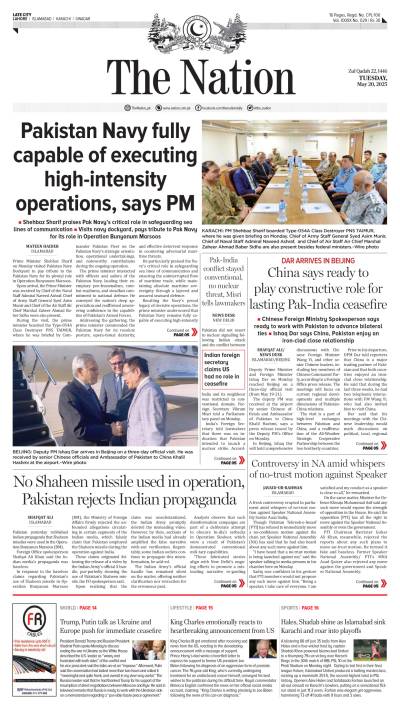LAHORE - A well-managed working capital is crucial to the running of a healthy and successful business. In simple terms, working capital is the cash available for the day-to-day running of the business, used to settle regular bills such as wages and supplies, and also covering unplanned costs and unexpected expenses. Working capital represents the liquidity available to a business, and can be calculated in various ways. Gross working capital is the entire sum of a company’s current assets; net working capital (NWC) stands for the company’s current assets minus its current liabilities, and represents the actual amount available at any given moment.
Managing capital; maximising profit
Good capital management ensures that the cash available to a business always exceeds its current liabilities, otherwise the business can risk running into problems associated with having a working capital deficit. In the short term this can damage the profitability of the business, and affect its operations. In the long term, poor working capital management can compromise a company’s eligibility for business loans, and damage its ability to attract potential investors.
A well-qualified and broadly experienced accounts manager can be worth his or her weight in gold in this field, ensuring the smooth running and steady growth of the business by means of skilful capital management. This may involve balancing the company’s finances with attention to outstanding incomes, creditors and inventory, and a capable accounts manager will be able to judge when it is prudent to buffer or bolster the company’s working capital by taking on a short term loan.
Nourishing capital; feeding growth
The appointment of an accounts manager, or interim financial consultant, can provide additional security by underpinning a company’s growth rate with careful regulation of investment plans and efficient handling of profit. A well thought-out capital management strategy will also be able to identify the right time to move into the cash conversion period, where a company’s assets are monetised, bearing in mind that it is not always possible to liquidate assets at short notice, or within a limited time frame.
As well as managing risks like this, a good accounts manager will be able to make the company’s resources and assets work harder, knowing when to fire up growth by pumping profits back into the business, and how to manage debt and credit in order to maintain the security of the company and its workforce.
Protection in an uncertain market
In order to protect a company from financial difficulties, and guard against bankruptcy, it is vital that a business has sufficient cash flow to pay its employees, service its debts, pay its liabilities without delay and react promptly and decisively to competition and changes in the market. An effective working capital management strategy should anticipate all of the above, and help to consolidate a company’s gains thus far, whilst also paving the way for future successes.
Wednesday, May 21, 2025
Importance of a good working capital management
5:43 PM | May 20, 2025
Six killed, 38 injured as school bus targeted in Khuzdar blast
10:58 AM | May 21, 2025
General Syed Asim Munir promoted to Field Marshal
May 21, 2025
PM directs zero tolerance against tax evasion
May 21, 2025
-
Lahore emerges among safest global cities in Numbeo 2025 index
-
Lahore emerges among safest global cities in Numbeo 2025 index
-
India’s suspension of Indus Water Treaty legally baseless
-
Seventh polio case reported in Pakistan amid nationwide vaccination drive
-
Pakistan reports sixth polio case of 2025
-
PTA begins issuing VPN licences to regulate usage
The Wider War
May 20, 2025
Margalla on Fire
May 20, 2025
Defeated and Depressed
May 20, 2025
Regional Reset
May 19, 2025
Peak Potential
May 19, 2025
Golf or Water
May 21, 2025
Performing CPR
May 21, 2025
Lack of Sign Language Teaching
May 21, 2025
State of War & Public Awareness
May 21, 2025
Indian Attack
May 21, 2025
ePaper - Nawaiwaqt
Nawaiwaqt Group | Copyright © 2025





